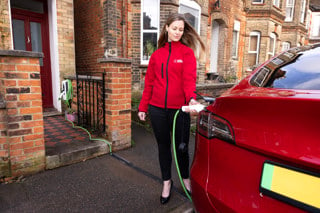The Government has asked the National Infrastructure Commission to recommend what policies are needed for the deployment of self-driving vehicles.
In August 2022, it claimed that by 2025 the UK will begin to see deployments of self-driving vehicles, with the aim of improving the way in which people and goods are moved around the country and creating an early commercial market for the technologies.
Through the measures proposed in the Automated Vehicles Bill, the Government says it also wants to ensure this market will be enabled by a “comprehensive regulatory, legislative and safety framework”.
In December, Fleet News reported how the transport secretary said cars could feature on some UK roads, with vehicle owners able to travel without having to pay attention to where they are going, by the end of 2026.
The Government says that automation and connectivity are central to how technology is “revolutionising” how people and goods move around the country.
The technology, it adds, presents significant opportunities for delivering improvements to road safety, reducing congestion, improving reliability and accessibility of transport services, while increasing productivity.
It explained: “The way we plan, operate and maintain our infrastructure is crucial to realising these benefits.
“Uncertainty is inherent in any emerging technology. However, uncertainty should not be a reason to do nothing, as to do so may result in missed opportunities to realise strategic objectives.
“Moreover, many of the actions taken to support self-driving vehicles will have benefits for many existing vehicles, which may further support the case for action.”
The focus of the study will consider the incremental steps and interventions that may be required on the road network to pursue a pathway towards more wide-spread adoption and the desired benefits.
This would form the basis of an adaptive strategy, exploring what additional policy and infrastructure requirements may be needed beyond the initial regulatory, safety and legislative framework already being developed by Government to achieve its 2025 vision for connected and automated mobility (CAM).
In making its recommendations, the Government has asked the Commission to consider: what additional policy, governance and infrastructure may be needed; and the potential use for private cars, taxis and private hire vehicles, as well as use cases and infrastructure needs associated with public transport and freight and logistics.
The study will also examine the potential benefits to conventionally driven or unconnected vehicles as well as those that are connected and self-driving; and benefits that can be realised in the near-term as well as when new technologies are widely deployed.
In carrying out the work, the Government says that the Commission will not re-consider the legislative, legal and regulatory requirements for the adoption of CAM already established by Government, nor how changes affecting vehicle production or service provision fit into the UK’s industrial strategy.
The Commission will acknowledge any technical challenges facing CAM technologies, but it said that it was not the role of this study to consider how to resolve them except insofar as it is relevant to its infrastructure remit.
The Commission has been asked to work with other Government bodies, such as Centre for Connected and Automated Vehicles, the Department for Transport (DfT) and National Highways and “engage extensively” with stakeholders through the study.
A final report is expected in around 12 months, with an interim report due in summer of 2024.






















Login to comment
Comments
No comments have been made yet.